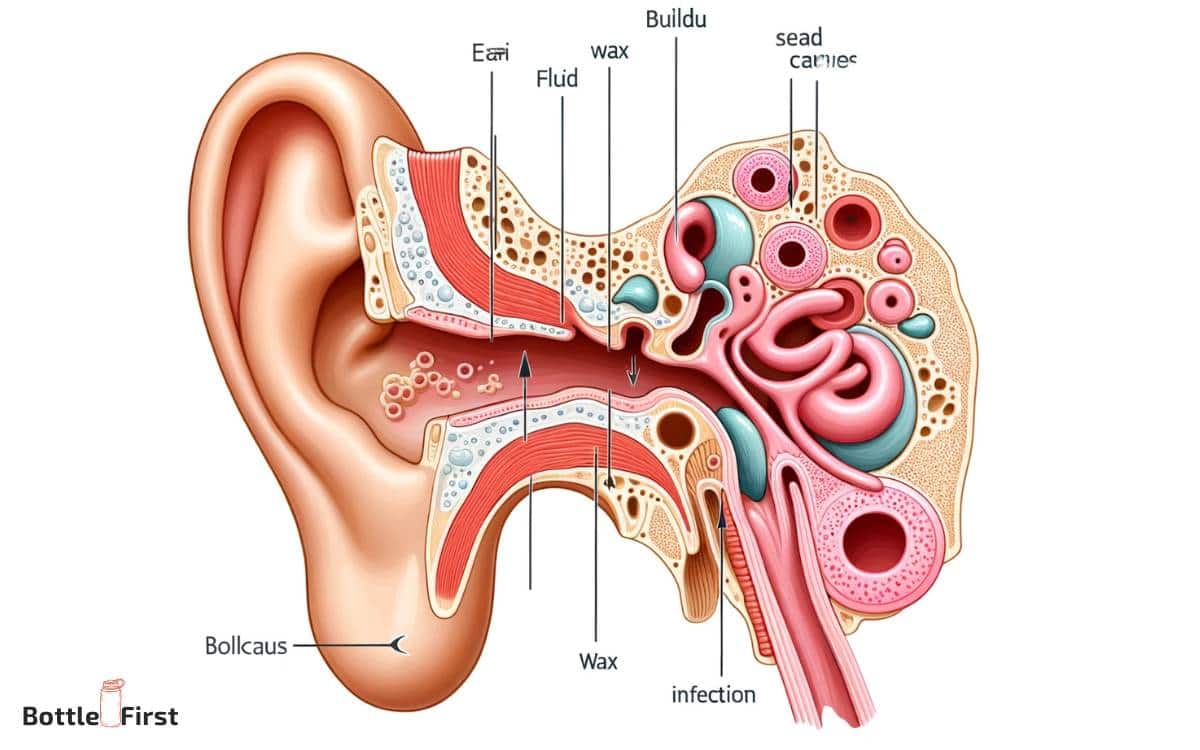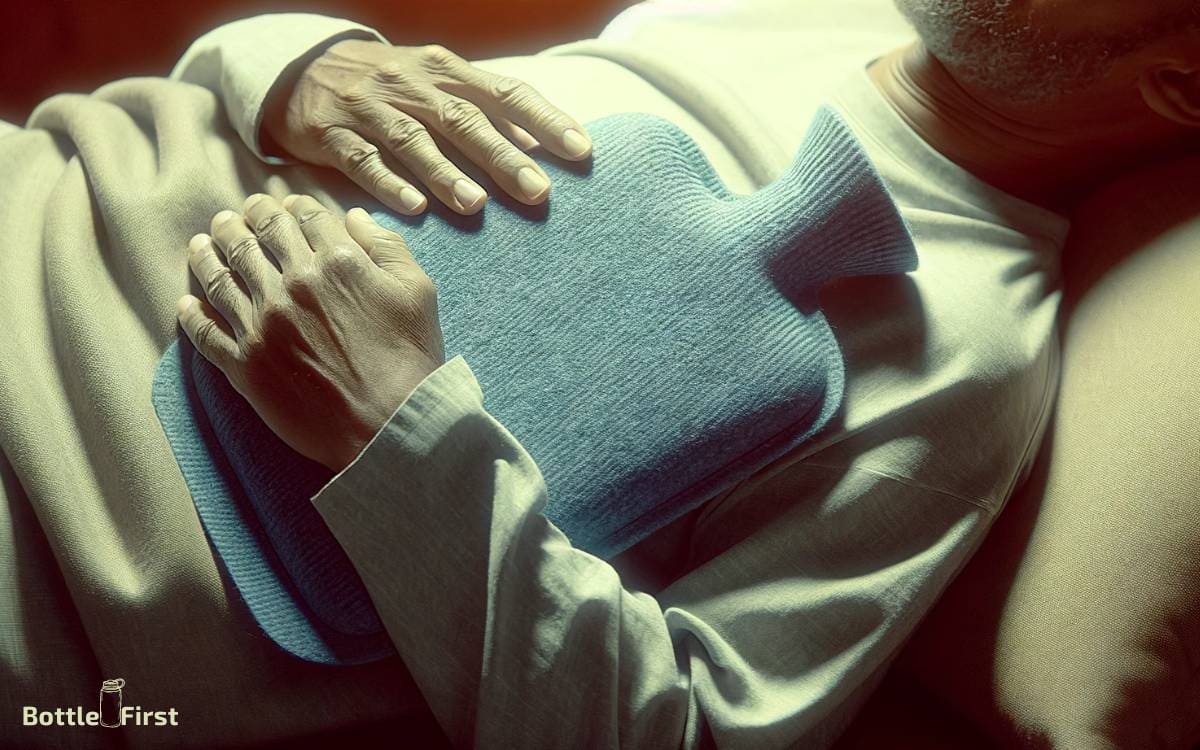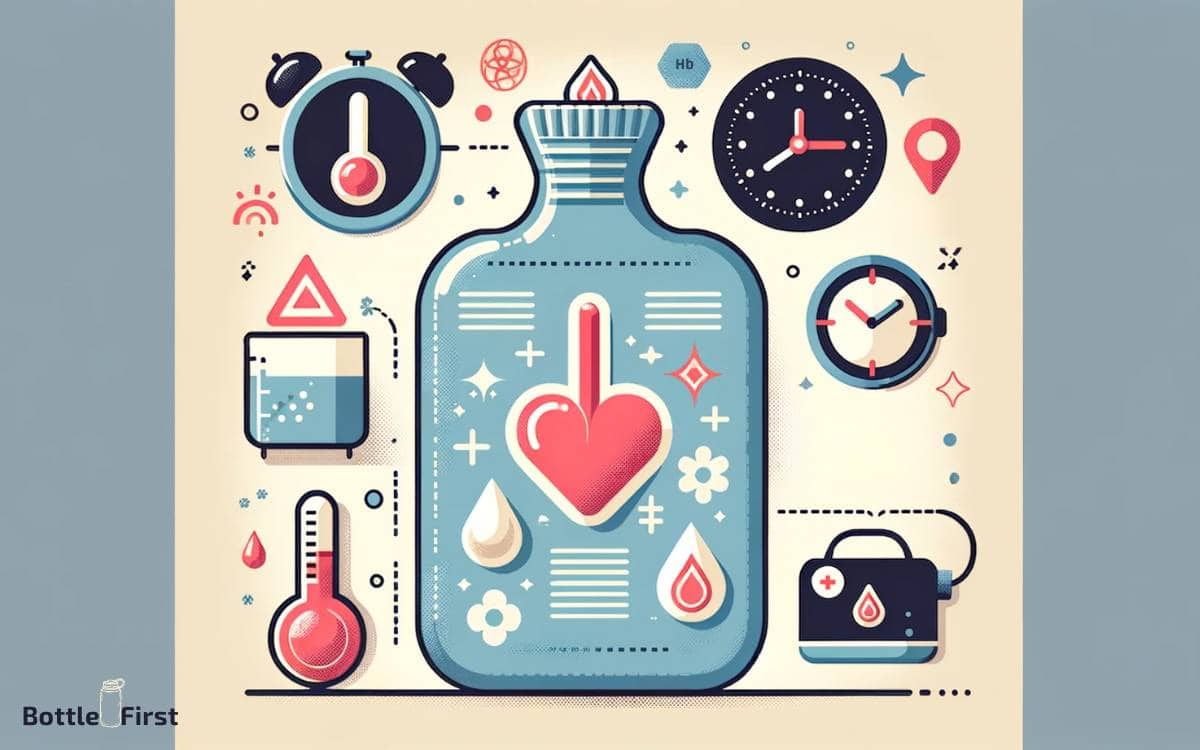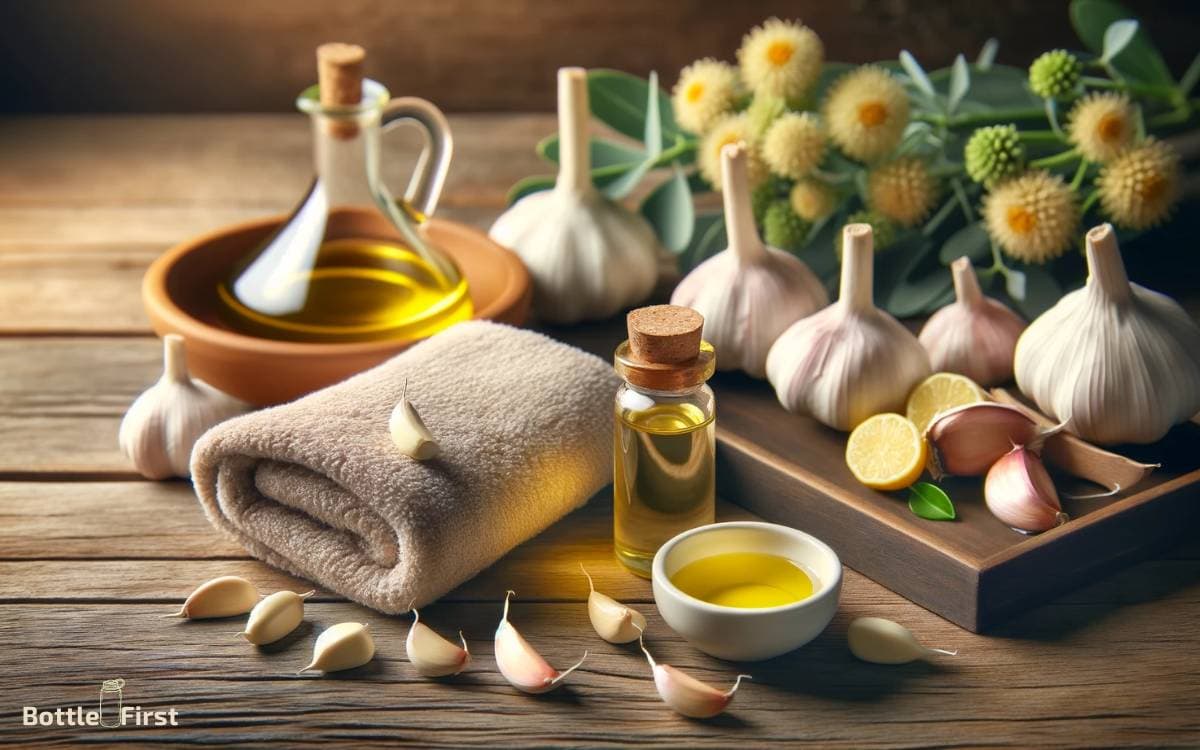Does a Hot Water Bottle Help Blocked Ears? Yes!
Yes, a hot water bottle can potentially help with blocked ears by utilizing heat therapy to alleviate the discomfort.
It is a simple and accessible method that can be tried at home to relieve the pressure and pain associated with ear blockages.
Blocked ears can occur for a variety of reasons, including the buildup of earwax, changes in air pressure, sinus infections, or the common cold.
Heat therapy from a hot water bottle can help by:
Example: When using a hot water bottle, wrap it in a towel to prevent burns and hold it against the affected ear for a few minutes to help alleviate the blockage.
Safety Precautions:
While a hot water bottle can offer temporary relief for blocked ears, it is important to consult a healthcare professional for persistent or severe cases to rule out any underlying conditions.
Using a hot water bottle can be an effective home remedy for easing the discomfort of blocked ears. Heat therapy, as provided by the warmth of the bottle, may help soften earwax and improve circulation in the ear, thereby reducing pain and pressure.
It’s essential to use the hot water bottle safely by ensuring it’s not too hot and is covered with a towel. Remember, if blocked ears continue, it’s advisable to seek medical advice.
Key Takeaway
Understanding Blocked Ears
An understanding of the common causes of blocked ears can assist in determining appropriate treatment methods.
Blocked ears can be caused by various factors, including earwax buildup, sinus infections, allergies, or changes in air pressure.
Earwax, also known as cerumen, is a natural substance produced by the body to protect the ear canal, but an excessive amount can lead to blockages. Sinus infections and allergies can cause inflammation and fluid buildup, leading to ear blockage.
Changes in air pressure, such as those experienced during air travel or scuba diving, can also result in temporary ear blockage.
Understanding these causes is crucial in identifying the most effective interventions for relieving ear blockage and preventing future occurrences.
Causes of Ear Blockage
What are the common causes of ear blockage and their associated symptoms?
Ear blockage can arise from various factors, including earwax buildup, fluid accumulation due to infections or allergies, Eustachian tube dysfunction, and foreign objects lodged in the ear canal.
Earwax, or cerumen, is a natural secretion that can sometimes accumulate and harden, leading to blockage and potential hearing impairment.
Fluid buildup, often associated with conditions like otitis media or allergies, can cause a feeling of fullness in the ear and affect hearing.
Eustachian tube dysfunction, which commonly occurs during upper respiratory tract infections, can result in pressure imbalances and ear blockage.
Additionally, the presence of foreign objects in the ear canal can lead to blockage and discomfort.
Recognizing the symptoms associated with these causes is crucial in determining appropriate interventions for ear blockage.
Hot Water Bottle Therapy
The use of hot water bottle therapy as a potential intervention for ear blockage is a topic of interest in addressing the underlying causes of this condition.
Hot water bottle therapy may offer relief for ear blockage through the following mechanisms:
- Heat Application: Applying a hot water bottle to the affected ear can help improve blood circulation, reduce inflammation, and alleviate discomfort associated with ear blockage.
- Moist Heat: The moist heat from a hot water bottle can help loosen earwax, making it easier to remove and potentially relieving ear blockage.
- Relaxation: The warmth from the hot water bottle can promote relaxation of the muscles and tissues around the ear, potentially aiding in the resolution of ear blockage.
- Pain Relief: The heat from the hot water bottle may provide pain relief for individuals experiencing ear blockage discomfort.
How Heat Affects Ear Blockage
Heat can play a crucial role in addressing ear blockage. It helps to loosen and break up earwax, making it easier to remove. Studies have shown that warm compresses can effectively soften earwax and provide relief.
Therefore, understanding how heat affects ear blockage is important for individuals seeking relief from this common issue.
Heat and Ear Blockage
Using a hot water bottle can potentially alleviate ear blockage by applying targeted heat to the affected area.
When heat is applied to the ear, it can help to soften and loosen the earwax, making it easier for the blockage to naturally clear.
The heat from the hot water bottle can also improve blood circulation to the ear, which may aid in reducing inflammation and relieving pressure.
Additionally, the warmth can provide a soothing effect, offering comfort to individuals experiencing discomfort due to ear blockage.
However, it is important to use the hot water bottle cautiously to avoid burning the delicate skin around the ear.
Seeking medical advice is crucial, especially if there is severe pain, persistent blockage, or any concerns about the underlying cause of the ear blockage.
Efficacy of Heat
Applying targeted heat to the affected area can significantly aid in softening and loosening earwax, potentially facilitating natural clearance and providing relief from ear blockage. Heat works by melting the earwax, making it easier for the body to expel it naturally.
Here is a table summarizing the efficacy of heat in addressing ear blockage:
| Heat Application | Efficacy |
|---|---|
| Hot Water Bottle | High |
| Warm Compress | Moderate |
| Hair Dryer | Low |
| Steam Inhalation | Moderate |
| Warm Oil Drops | High |
These methods can help soften earwax, promoting its expulsion. However, caution should be exercised to avoid burns or eardrum damage. It’s essential to consult a healthcare professional if there is severe or persistent ear blockage.
Safety Precautions and Tips
To ensure the safe and effective use of a hot water bottle for relieving blocked ears, it is important to adhere to proper guidelines for heat application.
Follow these safety precautions and tips:
- Use warm, not hot, water: Avoid using water that is too hot, as it can cause burns or damage to the skin around the ear.
- Test the temperature: Before applying the hot water bottle to the ear, test the temperature on the inside of your forearm to ensure it is not too hot.
- Limit application time: Do not use the hot water bottle for more than 20 minutes at a time to prevent overheating the skin or causing discomfort.
- Consult a healthcare professional: If you have any concerns about using a hot water bottle for blocked ears or if you experience persistent ear issues, seek advice from a healthcare professional.
Other Home Remedies to Try
When seeking relief for blocked ears, it is beneficial to explore other home remedies in addition to considering the use of a hot water bottle while maintaining safety precautions.
One such remedy is the application of a warm compress to the affected ear. This can be achieved by soaking a clean cloth in warm water, wringing out the excess, and gently pressing it against the ear for 20 minutes.
Another method involves utilizing over-the-counter ear drops to soften earwax, facilitating its natural expulsion.
Additionally, some individuals find relief by practicing the Valsalva maneuver, which involves gently blowing air through the nose while pinching the nostrils and keeping the mouth closed.
However, it is important to exercise caution and seek medical guidance before attempting any home remedies, especially if the symptoms persist or worsen.
Seeking Medical Assistance
If you are experiencing persistent or severe ear blockage, it is important to seek medical assistance. A professional ear examination can help identify the underlying cause and determine the most appropriate course of action.
It is essential to heed the advice of medical professionals to ensure the proper diagnosis and treatment of any ear-related issues.
When to See a Doctor
Seeking medical assistance for blocked ears can be crucial for proper diagnosis and treatment.
When to see a doctor:
- Persistent Symptoms: If ear blockage persists for more than a few days despite home remedies or if it is accompanied by severe pain, fever, dizziness, or hearing loss, seeking medical attention is essential.
- Ear Injury: If the ear blockage is a result of an injury, such as a foreign object lodged in the ear canal, it is important to seek medical help to avoid further damage.
- Underlying Health Conditions: Individuals with a history of ear problems, sinus issues, or allergies should consult a healthcare professional for appropriate management of their blocked ears.
- Uncertainty: When in doubt about the cause of ear blockage or if self-care measures do not provide relief, consulting a doctor is advisable for proper evaluation and treatment.
Professional Ear Examination
A professional ear examination is essential to accurately diagnose and address blocked ears.
Through specialized tools and expertise, healthcare professionals can identify the underlying cause of ear blockage, such as earwax buildup, fluid accumulation, or an infection.
During the examination, the ear canal, eardrum, and surrounding areas are carefully assessed to determine the most appropriate course of action.
Innovative technologies, such as otoscopes with magnification and fiber-optic illumination, enable detailed visualization of the ear structures, aiding in precise diagnosis.
Additionally, audiometric tests may be conducted to assess hearing function and identify any associated hearing loss.
Seeking medical assistance for a professional ear examination is crucial for the effective management of blocked ears, as it allows for tailored treatment strategies and reduces the risk of complications.
Importance of Medical Advice
Professional medical advice is pivotal for effectively addressing blocked ears, ensuring accurate diagnosis, tailored treatment plans, and prevention of potential complications.
Seeking medical assistance is crucial for the following reasons:
- Accurate Diagnosis: Medical professionals can conduct thorough examinations to identify the underlying cause of blocked ears, which may include issues such as earwax buildup, infections, or Eustachian tube dysfunction.
- Tailored Treatment Plans: A healthcare provider can create personalized treatment strategies based on the specific cause of the blocked ears, ensuring the most effective and appropriate interventions.
- Prevention of Complications: Medical advice helps in preventing potential complications such as hearing loss, tinnitus, or further infection that may arise from untreated or improperly managed blocked ears.
- Expert Guidance: Healthcare professionals offer expert guidance on preventive measures, lifestyle adjustments, and follow-up care to maintain optimal ear health.
Seeking medical advice is essential for the comprehensive and effective management of blocked ears.
Conclusion
The use of a hot water bottle may provide some relief for blocked ears by promoting blood circulation and reducing tension in the ear muscles.
However, it is important to exercise caution and seek medical advice if the condition persists or worsens.
Other home remedies and safety precautions should also be considered before attempting hot water bottle therapy.








